
*****Theme: Climate Change Knowledge Brokering
Overview
Human activities, principally through emissions of greenhouse gases, have unequivocally caused global warming, with global surface temperature reaching 1.1°C in 2011-2020. Between the years 2031-2060, temperatures are projected to rise by 1.5°C to 3 °C in contrast to the average temperature between 1981-2010. Global greenhouse gas emissions have continued to increase, with unequal historical and ongoing contributions arising from unsustainable energy use, land use and land-use change, lifestyles and patterns of consumption and production across regions, between and within countries, and among individuals. Widespread and rapid changes in the atmosphere, ocean, cryosphere and biosphere have occurred. Human-caused climate change has led to widespread adverse impacts and related losses and damages to nature and people. Vulnerable communities who have historically contributed the least to current climate change are disproportionately affected. Increasing weather and climate extreme events have exposed millions of people to acute food insecurity and reduced water security, with the largest adverse impacts observed in many locations and/or communities in Africa, Asia, Central and South America, LDCs, Small Islands and the Arctic, and globally for Indigenous Peoples, small-scale food producers and low-income households. Between 2010 and 2020, human mortality from floods, droughts and storms was 15 times higher in highly vulnerable regions, compared to regions with very low vulnerability. In all regions increases in extreme heat events have resulted in human mortality and morbidity. Hundreds of local losses of species have been driven by increases in the magnitude of heat extremes Economic damages from climate change have been detected in climate-exposed sectors, such as agriculture, forestry, fishery, energy, and tourism (IPCC Synthesis Report, 2023).
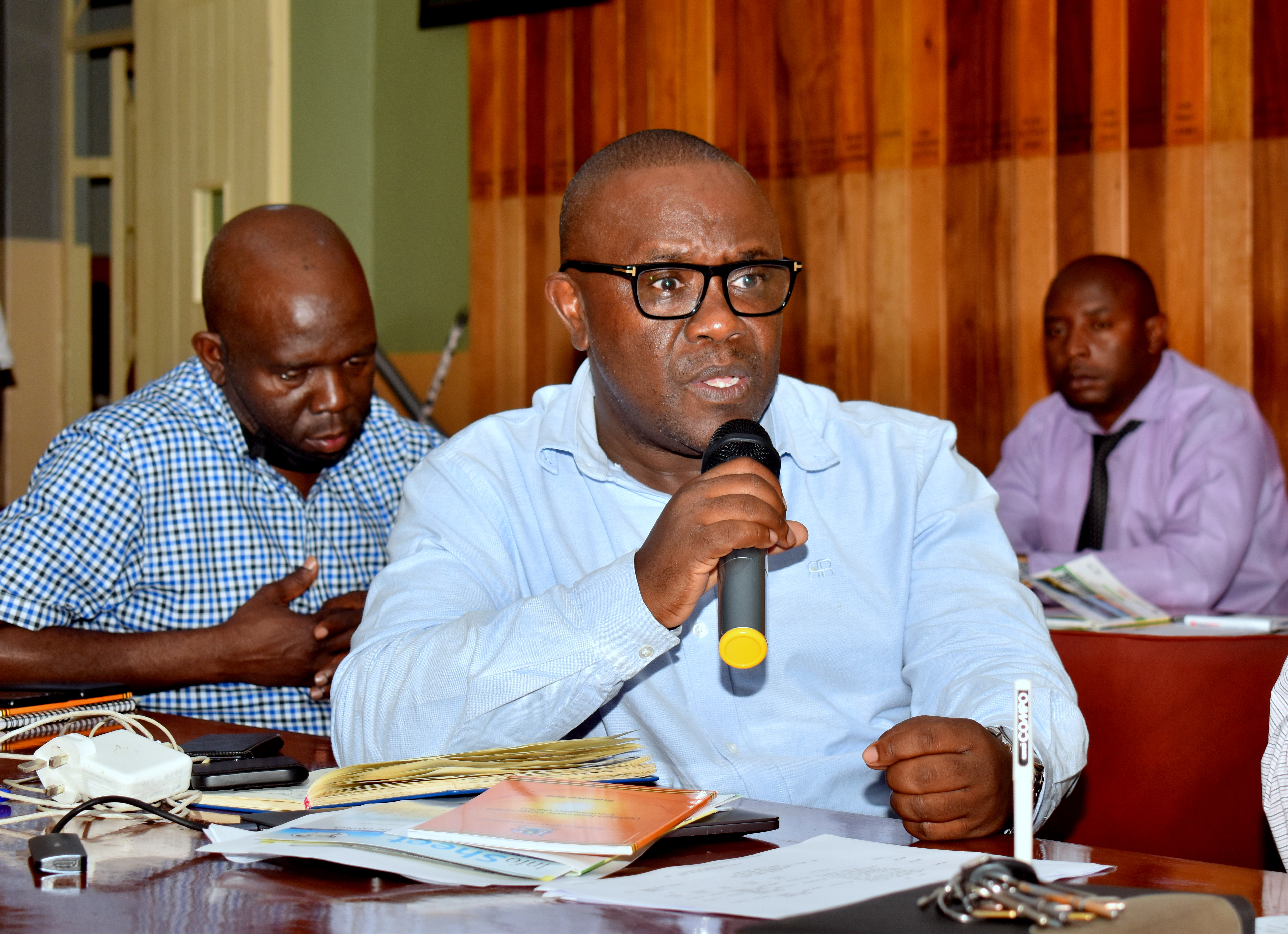
According to the Report, adverse impacts from human-caused climate change will continue to intensify, a factor that calls for adaptation planning and implementation across the globe.
Adaptation gaps in Uganda
In Uganda, a significant adaptation gap exists and is expected to widen despite the rising public knowledge of climate change, and progressive implementation of adaptation interventions. Some of the key barriers to adaptation include low climate literacy and public engagement, low uptake of adaptation science, and insufficient financial mobilization.
Plans to narrow adaptation gap
In a bid to contribute to narrowing the adaptation gap, Makerere University Climate Change Research Institute (MUCCRI) and Environmental Management for Livelihood Improvement Bwaise Facility (EMLI) intend to collaborate with partners to facilitate mutual learning and open deliberation amongst all the relevant stakeholders, particularly researchers, Civil Society Organizations, policy makers, the private sector.
Policy Dialogue on Climate Science
On 20th June 2023, Makerere University School of Forestry, Environmental and Geographical Sciences in collaboration with MUCCRI, EMLI and World Wide Fund for Nature Conservation-Uganda Country Office (WWF-UCO) held a policy dialogue on climate science. The dialogue held at Makerere University under the theme; Climate Change Knowledge Brokering was attended by researchers, policy makers, representatives from civil society organizations, representatives from the government, and the private sector.
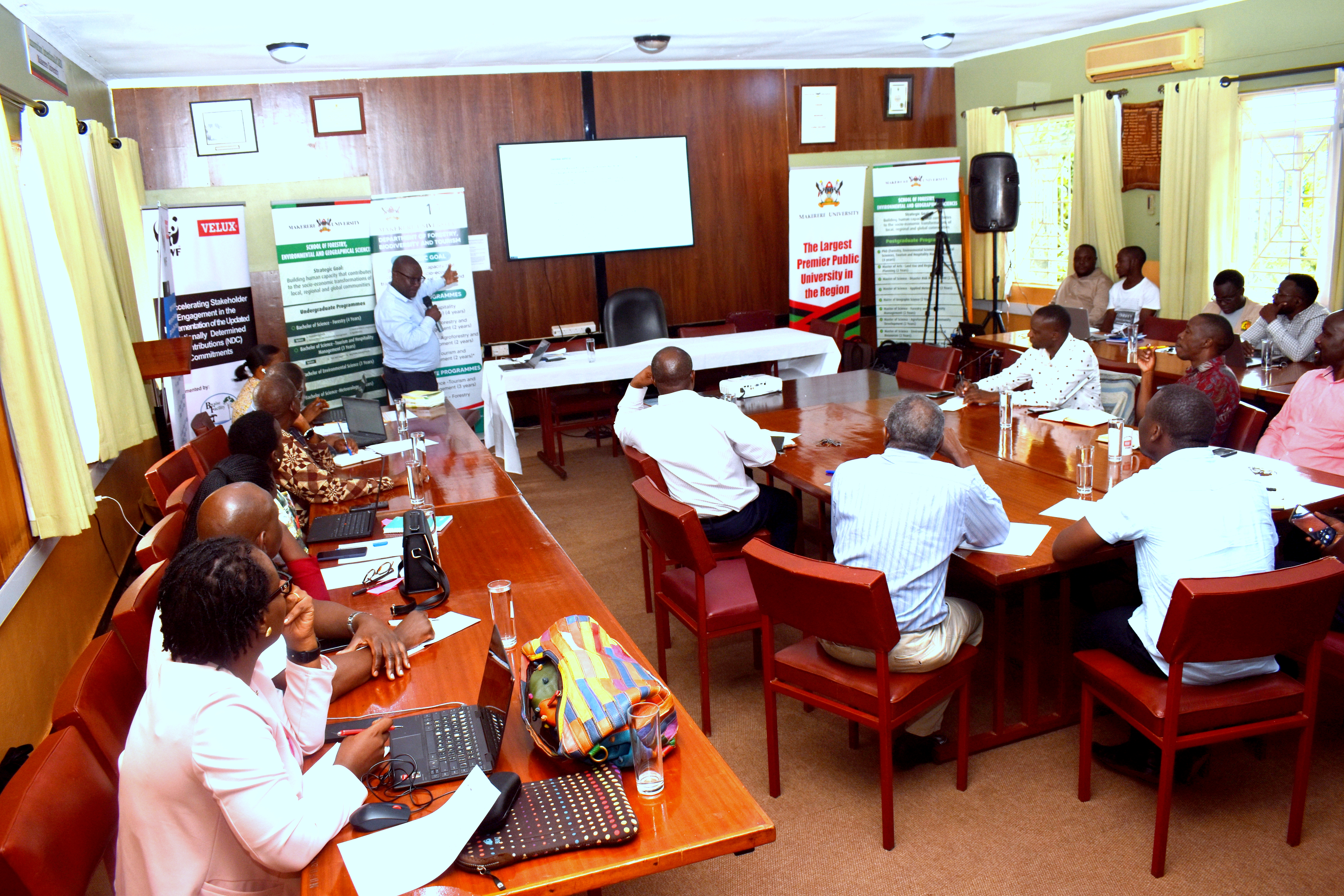
Delivering a presentation titled, University-Based Researchers as Knowledge Brokers for Climate Policies and Actions, Dr. Revocatus Twinomuhangi, Dean, School of Forestry, Environmental, and Geographical Sciences, Makerere University, also Coordinator of MUCCRI called for increased engagement between policy makers and researchers. “Universities are knowledge brokers. To make a good policy, you need evidence and evidence can only be got from research. In most cases, policies do not work because they are not backed up by evidence. There is lack of quality information to address the challenges. Universities therefore have a critical role to play in informing policy and mitigating the impact of climate change,” he explained, noting that most times important research that would inform policy remains on the shelves due to lack of coordination and engagement.
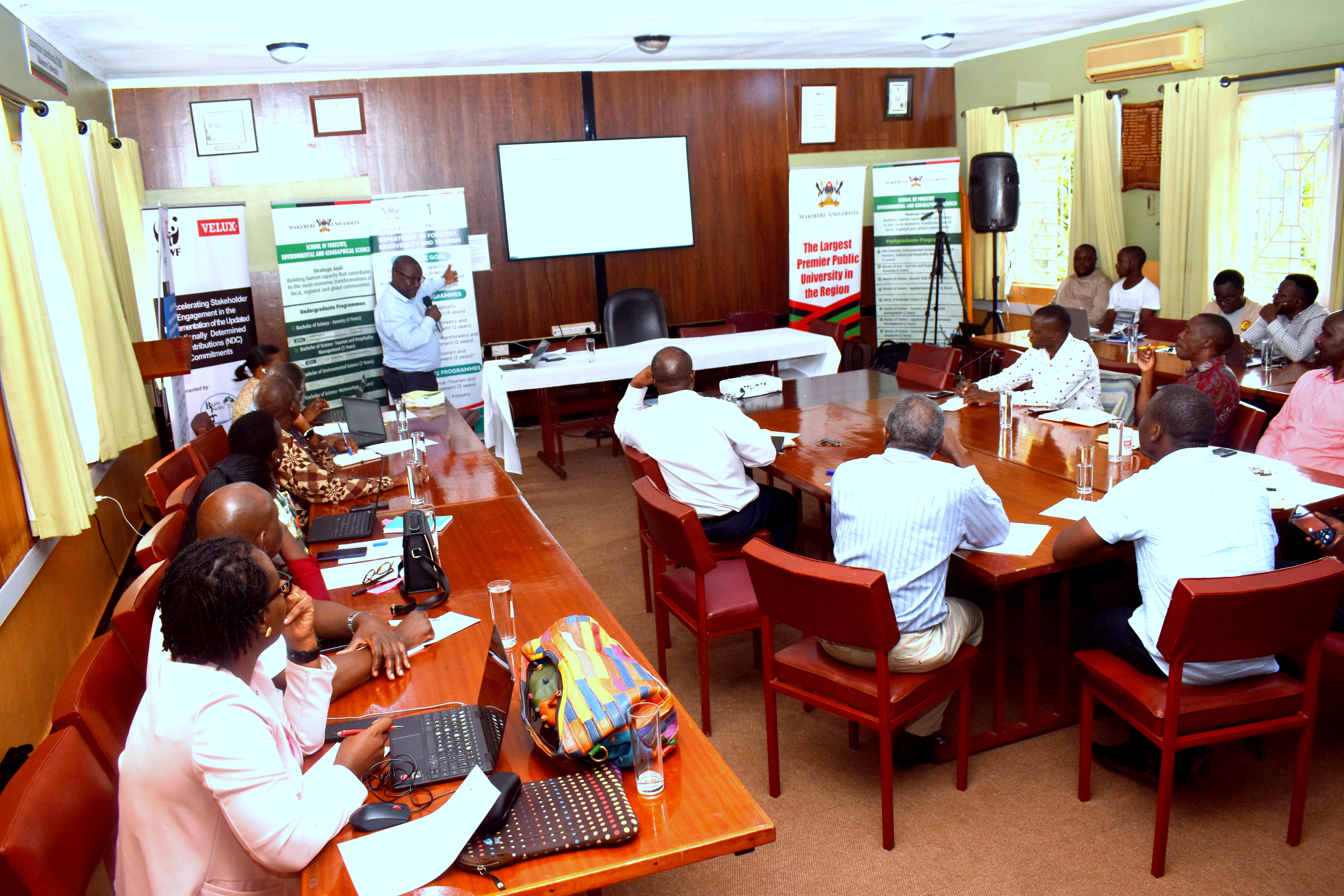
According to Dr Twinomuhangi, a study conducted to understand the experiences of researchers who attempt to engage around climate issues revealed that people in the world of policy regard University researchers as too rigid and theoretical with limited knowledge about policy issues. The study also revealed that most times policy makers preferred and depended on media reports in making decisions because scientific research is too technical and difficult to interpret. Other factors undermining engagement included; heavy workload, lack of incentives, limited funding for outreach within the government and universities, limitations to information sharing, and the continued erosion of academic freedom.
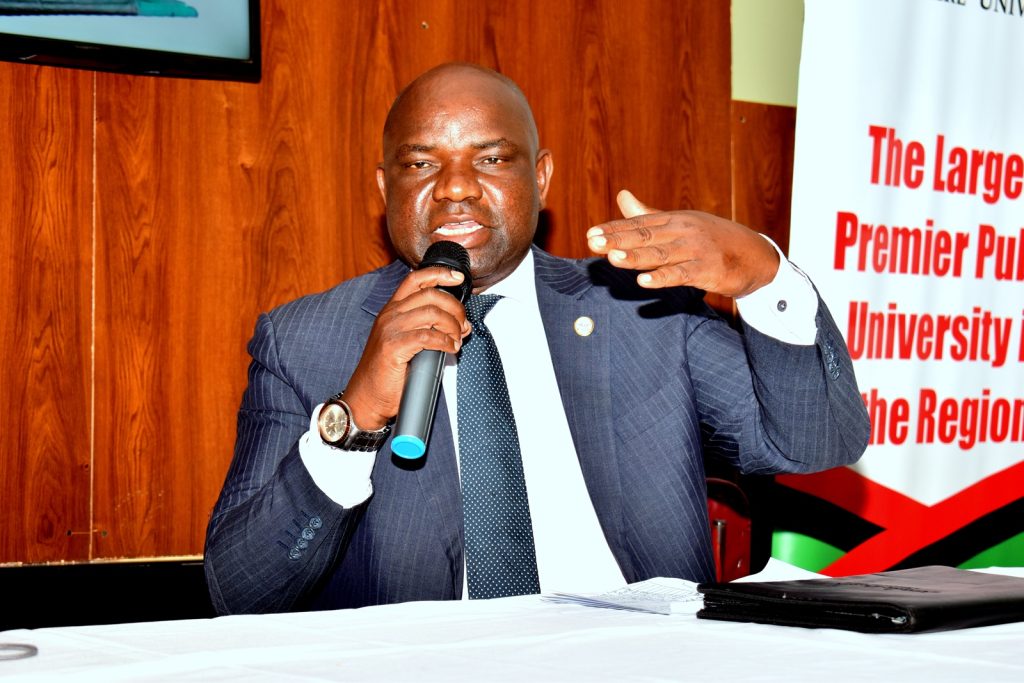
In a bid to bridge the gap between academia and policy makers, participants emphasized the importance of engagement in policy formulation, and made recommendations to retool researchers to effectively communicate with the world of policy. Suggestions were also made to increase funding for research, set terms of reference for policy engagement, hire academics as advisors in government, and increasingly use media and communication specialists to disseminate research to the policy world.
Commenting on the role of academia in policy formulation, Dr Patrick Byakagaba, a Lecturer from the Department of Environment, Makerere University explained that the public was increasingly appreciating the knowledge generated by Universities. “There is increased uptake of the knowledge generated at the University because it is perceived to be credible,” he noted, pointing to the growing interest for collaboration between the academia and policy actors.
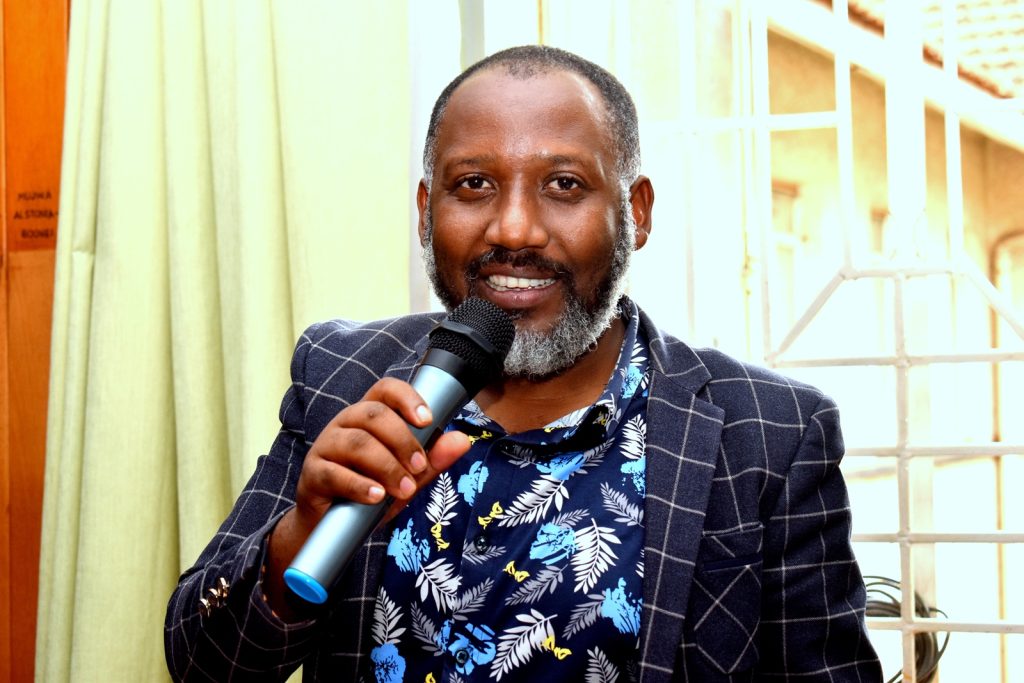
To increase uptake, Ms. Jalia Namubiru from EMLI urged academics to always align their research to policy needs.
In his presentation, the Representative of the Parliamentary Committee on Climate Change, Hon. Biyika Lawrence Songa highlighted several barriers to climate change management including lack of coordination amongst stakeholders, inadequate laws, restrictions on the type of research that can be conducted, and corruption. He highlighted the need to address governance issues and to review climate laws. The representative of civil society organizations, Mr. Paul Mulindwa decried the low implementation of adaptation actions and called for policy that relates to actions of the people who suffer the consequences of climate change.
Mr. Yona Turinayo Karibwije, Energy and Climate Programme Coordinator at WWF Uganda Country Office called for inclusiveness within the agenda of climate change. “Involve communities, simplify research for the local population, and embrace interdisciplinarity in research.”
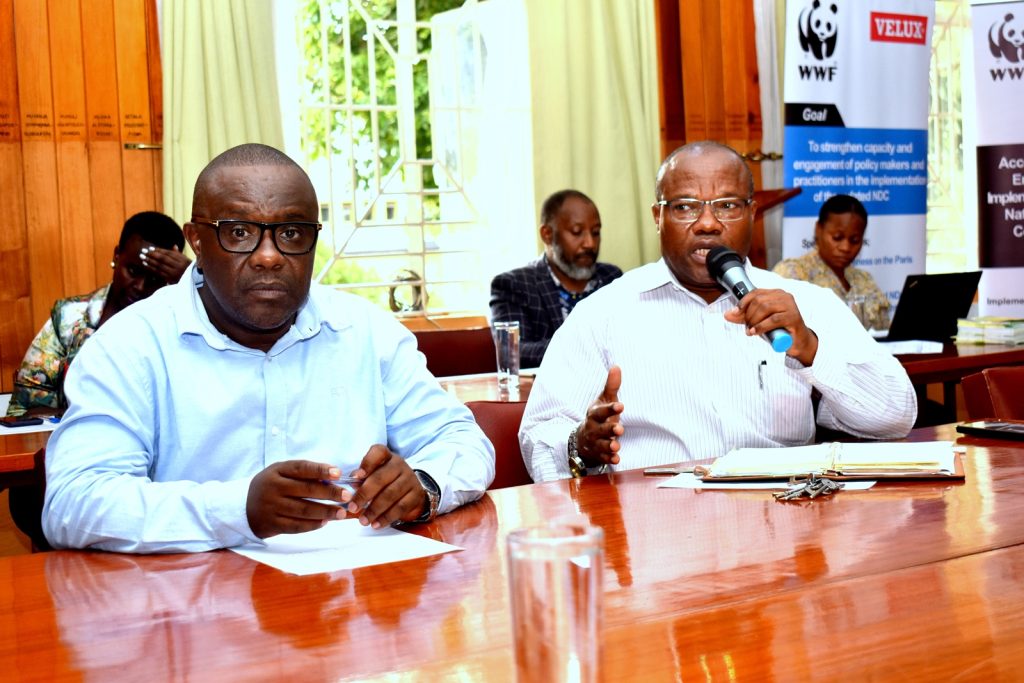
Dr Edward Nector Mwavu, Head, Department of Forestry, Biodiversity and Tourism, Makerere University rallied the academia and researchers at Makerere and other universities to continue providing expert opinions on climate change and other issues of national importance. In a bid to reverse the harsh effects of climate change, Dr Mwavu called for more research and innovation, sensitization of the local populace, as well as strengthening of adaptation mechanisms.
As takeaways from the dialogue, participants emphasized the importance of indigenous knowledge, and good governance in climate change actions. They also emphasized the need for Universities to put in place appropriate frameworks to foster engagement in policy formulation.
